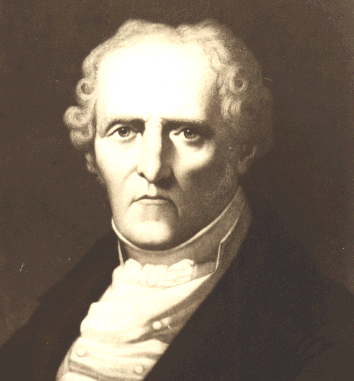Recommended Biography of Fourier! Jonathan Beecher, "Charles Fourier Biography: The Illusionist and His World" Summary and Comments
The book introduced here is "Charles Fourier: The Visionary and His World," written by Jonathan Beecher and translated by Tomoki Fukushima, and published by Sakuhinsha in 2001.
Let's take a quick look at the book.
This is a full-fledged critical biography of Charles Fourier, a rare utopian whose life is a mixture of "clear-sighted insight" and "strange speculation" that highlights in detail the formation process of his thought.
AmazonProducts Page.
The book is a biography of Charles Fourier, considered the leading French visionary socialist.
Who is Fourier, Previous ArticleYojiro Ishii, "From Science to Imagination: The Revival of Fourier," about Fourier, the famous utopian visionary socialist.But let's look at the profile again, this time with a brief introduction.

Born in Besançon to a merchant family. He developed his own theory of "emotional attraction" in "The Theory of the Four Movements" and other works, and proposed an agricultural cooperative called "Phalange," but due to the difficulty of the concept and the absurdity of his arguments, he was largely ignored by his contemporaries and passed away without much success. In the 20th century, Benjamin, Breton, Barthes, and others began to pay attention to the originality of his writings and gave them a new reading from their own perspectives. was published for the first time in 1967, and it triggered a reappraisal of his work.
Fujiwara Shoten, Yojiro Ishii, From Science to Imagination, Reviving Fourier
This biography is a rather detailed look at the life of Fourier, who imagined a utopia that his contemporaries could not understand at all and proposed his own theory of socialism.
The translator's afterword describes the book's features as follows
A word about the Fourier interpretation of this book: it is not as influential beyond Fourier studies as, for example, those of Roland Barthes, Simone Deboux, or René Chérère (or even further back in time, as in Engels' From Utopia to Science). It is not a "moderate" work. It is rather moderate. But precisely because of this, the book is a very basic, easy-to-understand commentary on Fourier, free from excessive reading and factual interpretation. This is especially important to note at a time when so many different images of Fourier are being bandied about. (Omitted).
The most significant feature of this book, however, is its comprehensiveness, first and foremost in its detailed examination of Fourier's biography, which reveals the relationship between the environment surrounding Fourier and the formation process of his ideas without omission.
Many of Fourier's developments during the first half of his life, especially during the revolutionary period, are revealed for the first time in this book. It also seeks to reconstruct the relationship between Fourier's sentiments and actions and the development of his thought throughout his life, using his imagination.
The book is filled to overflowing with anecdotes about the human Fourier, but unlike the usual biographical studies, this is not to reduce Fourier's theory to biographical anecdotes. On the contrary, it is intended to better explain the theory and its formation process. The simplicity with which the theory is summarized in an itemized manner is outstanding.
For these reasons, this book is an indispensable basic reference for future Fourier studies.
Opus Publishing, Jonathan Beecher, translated by Tomoki Fukushima, Charles Fourier: The Visionary and His World, p. 431-432
Some line breaks have been made.
This is not a popular book, but rather a scholarly work. However, it is not a book that is too academic for the average reader to understand.
I enjoyed reading it myself and was surprised many times by surprising facts. In particular, I was trying to read Fourier in order to learn about Marx, but I was surprised many times by his relationship with Dostoevsky. Dostoevsky had been devoted to Fourier for a time. Then he was exiled to Siberia as a political prisoner. Although there is no direct reference to Dostoevsky in this book, I felt that I could somehow see what attracted Dostoevsky to Fourier when I read it.
We will look at this again in the next article.
Now, I will end this article with a section that explained the most distinctive characteristics of Fourier's utopian socialism.
According to Friedrich Engels, the most characteristic quality of utopian socialist thinking was the tendency to try to draw "fanciful blueprints" of a future society. He says that utopian socialists are unable to explain how their plans can be realized, so instead they try to describe in extraordinary detail what life in an ideal society would be like. By this standard, Fourier must be judged to have been an utter Utopian. He produced thousands of pages of detailed blueprints, including architectural details, typical labor schedules, nursery furniture designs, color designs for work clothes, and designations for livestock marching formations.
Opus Publishing, Jonathan Beecher, translated by Tomoki Fukushima, Charles Fourier: The Visionary and His World, p 213
Engels indeed. He speaks very clearly about the characteristics of utopian socialists. This is easy to understand.
This biography is an in-depth look at the life of Fourier. It is a voluminous work and quite a formidable volume, but I am sure you will find it interesting. As a Dostoevsky fan, this work had quite an impact on me.
This is "Jonathan Beecher, "The Biography of Charles Fourier: The Visionary and His World," a recommended biography of Fourier! The above is a recommended biography of Fourier!
Next Article.
Click here to read the previous article.
Related Articles







































